Search Definitions
Browse Content (p. 197)
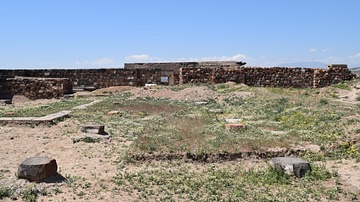
Definition
Erebuni
Erebuni was an Urartian fortress and city, located between the Nor Aresh District and the Vardahsen District on the outskirts of present-day Yerevan, Armenia, and situated on top of Arin Berd hill. In Armenian, the fortress and archaeological...
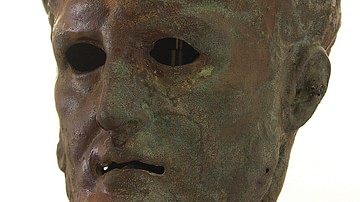
Definition
Brundisium
Brundisium (modern Brindisi), located on the Adriatic coast of southern Italy, was a Messapian and then Roman town of great strategic importance throughout antiquity. Although architectural remains are sparse, the city has several claims...

Definition
Tarentum
Tarentum (Taras, modern Taranto), located on the southern coast of Apulia, Italy, was a Greek and then Roman city. Controlling a large area of Magna Graecia and heading the Italiote League, Tarentum, with its excellent harbour, was a strategically...

Definition
Woolly Mammoth
The woolly mammoth, Mammuthus primigenius, is an extinct herbivore related to elephants who trudged across the steppe-tundras of Eurasia and North America from around 300,000 years ago until their numbers seriously dropped from around 11,000...
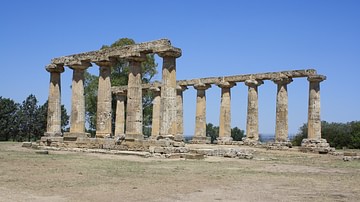
Definition
Metapontum
Metapontum, located on the southern coast of Basilicata, Italy, was an Achaean colony founded in the late 8th century BCE. Thriving on agriculture and trade, the city became one of the most prosperous colonies in Magna Graecia. Today, the...
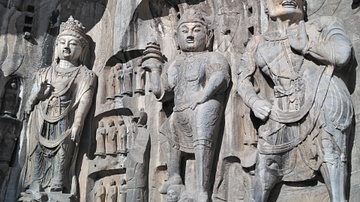
Definition
Longmen Grottoes
The Longmen Grottoes, a Buddhist cave complex located 13 kilometers south of Luoyang in China's Henan province, form some of the most significant and exquisite representations of ancient Chinese stone art. Created over the course of approximately...

Definition
Amarna Period of Egypt
The Amarna Period of ancient Egypt was the era of the reign of Akhenaten (1353-1336 BCE), known as 'the heretic king'. In the 5th year of his reign (c. 1348 BCE), he issued sweeping religious reforms which resulted in the suppression of the...
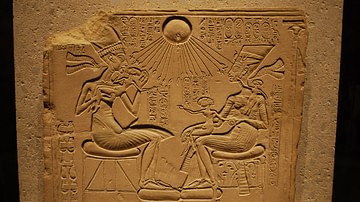
Definition
Amarna
Amarna is the modern Arabic name for the site of the ancient Egyptian city of Akhetaten, capital of the country under the reign of Akhenaten (1353-1336 BCE). The site is officially known as Tell el-Amarna, so-named for the Beni Amran tribe...

Definition
Fayum
The Faiyum (also given as Fayoum, Fayum, and Faiyum Oasis) was a region of ancient Egypt known for its fertility and the abundance of plant and animal life. Located 62 miles (100 kilometers) south of Memphis (modern Cairo), the Faiyum was...

Definition
Silk in Antiquity
Silk is a fabric first produced in Neolithic China from the filaments of the cocoon of the silk worm. It became a staple source of income for small farmers and, as weaving techniques improved, the reputation of Chinese silk spread so that...